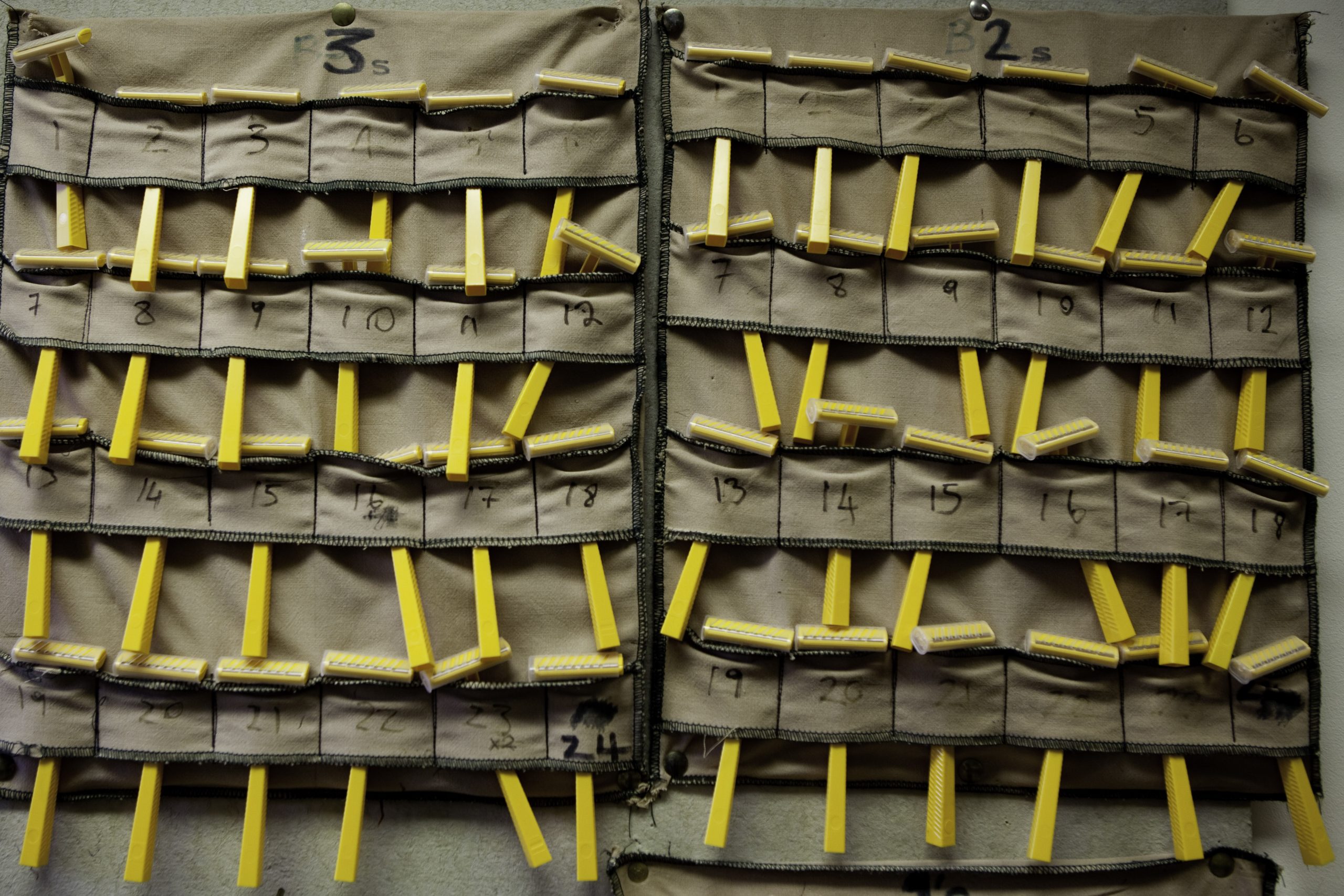‘Neither decent nor humane’: MPs challenge minister over prisons crisis

Pic by Andrew Aitchison. Ayelsbury YOI
One prisoner in four was being held in a cell designed for fewer people, MPs were told yesterday. In evidence to the House of Commons’ justice committee, the National Offender Management Service chief executive Michael Spurr confirmed that 24% of the prison population were ‘held in accommodation designed for fewer people- in other words, either a single cell with two prisoners or a double cell with three prisoners’.
The man responsible for prisons and probation in England and Wale reckoned that the service needed 8,000 new officers to meet staffing requirements. Only a few weeks ago the justice secretary Liz Truss promised an extra 2,500 more prison officers by the end of 2018 when she unveiled her prisons white paper, plus an immediate £14m to bring in 400 additional prison officers into the 10 ‘most challenging’ prisons by March next year. ‘If we are going to fill everything through recruitment, we need to fill 4,000 next year and 4,000 the year after in order to be able to meet all our requirements,’ Spurr told the MPs. He also said that the staff turnover rate was high as 15% in parts of the country.
The committee chairman, Tory MP Bob Neill opened the session by asking justice minister Sam Gyimah about events of recent weeks which he summed up as including ‘an alleged murder, two people who have escaped from Pentonville and what can only be described as a riot in Bedford. What is happening?’ The minister replied that prisons were the Ministry of Justice’s ‘number one priority’. ‘One thing that could make an immediate impact on what is a game-changing situation is increased staffing and that is why we have the new money to recruit 2,500 staff,’ he said. We are half way there to recruiting the 400 staff needed for next April.’
Neill said argued that, as part of the coalition government, ‘we took too many prison officers out, didn’t we?’ The number of prison officers fell by 30% between 2010 and 2013. The minister called that ‘a simplistic analysis’. Instead, Gyimah argued that the ‘game-changing situation, the situation that did not exist’ was the advent of new psychoactive substances’. He said that the MoJ had so far trained 300 sniffer dogs to detect for new style drugs and had struck a deal with mobile phone operators to block calls from smuggled phones to disrupt the criminal activity which would be piloted in three prisons.
‘It is almost impossible to explain the change in culture,’ Gyimah said. ‘A lot of prison officers will tell you that 10 years ago attacks on female prison officers were unheard of and now you have prisoners openly talking about ‘potting’, which is throwing urine and faeces on a prison officer.’
Earlier in the week, the Howard League for Penal reform reported the case of a young prisoner refused the opportunity to see his dying mother because, it was claimed, the prison was so short-staffed that it could not provide staff to escort him. Eventually he was allowed a phone call but by then his mother’s life support machine had been switched off.
Our lawyer just tried to get prison to let boy visit his dying mother. Refused. No staff to go with him.Hospital switching off life support.
— Frances Crook (@francescrook) November 24, 2016
Bob Neill cited the case and asked whether the minister agreed that such treatment was ‘neither humane nor decent’. ‘Under our reforms every prison officer will be looking after six prisoners and that would be enough to provide the support that is necessary and needed in our prisons,’ Gyimah replied. ‘That is not happening at the moment.’
Meanwhile earlier in the week the Howard League together with the Centre for Mental Health reported that 102 prisoners had taken their lives in the last 12 moths, the highest number of prison suicides since recording began in 1978. The prison suicide rate – 120 deaths per 100,000 people – was about 10 times higher than the rate in the general population.
‘The number of people dying by suicide in prison has reached epidemic proportions,’ commented Frances Crook, the Howard League’s chief executive. ‘No one should be so desperate while in the care of the state that they take their own life, and yet every three days a family is told that a loved one has died behind bars. Cutting staff and prison budgets while allowing the number of people behind bars to grow unchecked has created a toxic mix of violence, death and human misery.’







